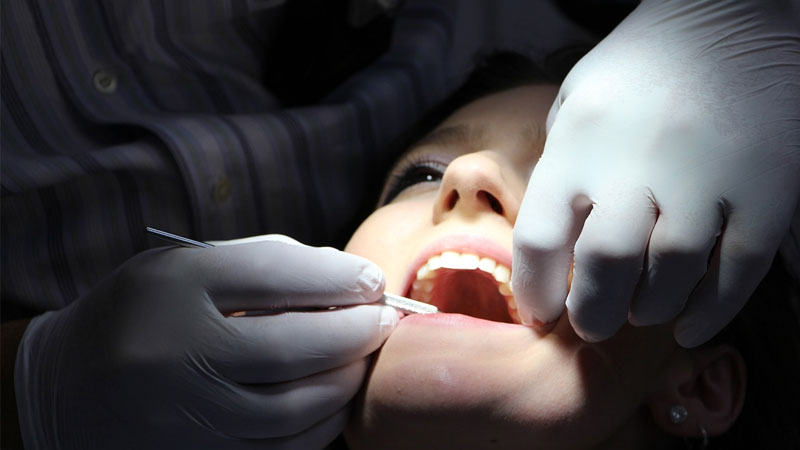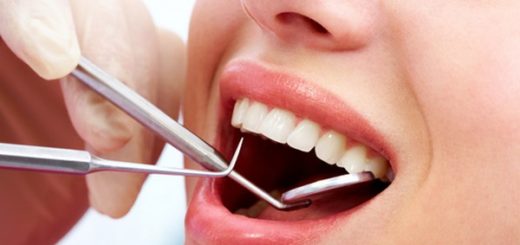The Pros and Cons Of Dental Crowns – Is It The Right Option For You?
Dental crowns play a key role in dental treatment for people who have damaged teeth – to help them restore the look and function – but are they right the option for you? Ultimately, your dentist will help you find the option that best suits you and your teeth.

Let’s look at the advantages and disadvantages of dental crowns.
What is a dental crown?
It is basically a cap for the tooth. It is specially shaped to fit your tooth and it just placed over the top.
What are dental crowns used for?
Dental crowns will help to restore a tooth’s shape and size and it will improve the look of the tooth.
They are used for:
- Covering up a large filling that needs replacing
- Covering an implant
- Supporting a weak tooth that has been impacted by severe tooth decay or a cavity
- Covering or holding together a tooth that is cracked or decayed
- Holding a dental bridge in place
- Covering misshaped or discolored teeth
- Restoring a broken tooth or one that has been worn down
What types of crowns do dentists use?
Permanent crowns can be made of stainless steel, metals, porcelain fused to metal, resin, all ceramic or all porcelain.
For adults, stainless steel crowns are usually used as a temporary measure while a permanent crown is being made from another material for long term use. Some people opt for gold or platinum crowns or an alloy of cobalt/chromium or nickel/chromium. Metal crowns are strong and durable, they don’t chip or break, and are usually the longest lasting type of crown as they don’t wear down very easily either. The reason some people don’t opt for metal crowns is because they are higher in price and the metallic color in their mouth. They are usually the most popular for teeth at the back of the mouth, which are out of sight.
Crowns that are porcelain fused to metal are often more popular as they can be color matched to your existing teeth. But they can wear down the teeth either side of them and eventually the porcelain can chip off and show the metal underneath.
All resin crowns are probably the least expensive of all the different types of crowns. But the downside of resin is that they can fracture really easily or wear down over a period of time.
Porcelain crowns are the most popular because they give the most natural look of all the crowns available. They match existing teeth well in shape, size and color. One big advantage of porcelain crowns is that they are toxic free.
One flaw with porcelain crowns is that they are not as strong as metal ones, but there is no reason why they should not last a long time if they are looked after correctly.
Porcelain crowns that are fused to metal are very widely used and have been around for more than 50 years. They are stronger than porcelain crowns on their own as they have the added strength and support of the metal underneath. One reason why people might not opt for these is because they can leave a grey line on the gum line, but this would not be noticeable with teeth towards the back of the mouth.
There is a also a new type of material that is being used by some dentists called Zirconia. This gives patients the best of the porcelain and metal crowns in one material. It is extremely strong and it looks good as it blends well with other teeth. These crowns are less likely to wear down as they are so strong. They don’t contain toxins and are unlikely to cause an allergic response in patients.
There are a couple of disadvantages of this type of crown. Zirconia is so strong that it may cause the teeth that they bite onto to wear down quicker. And the other disadvantage is that solid zirconia can be difficult to adjust.
The latest in crowns is called the E-Max, which is made of lithium disilicate. They look very natural in your mouth, they are strong and long lasting. They can be very expensive and the technology is still work in progress for dentists.
How much do crowns cost?
The cost of having a crown fitted is not just the cost of the physical material. If a lot of work is needed to prepare the tooth, then it will cost more money. Crowns usually cost between $600 and $1,700 per tooth, depending on which material you choose. Gold crowns can be between $600 each $2,500 each. Porcelain crowns can cost between $800 and $3,000. Zirconia caps cost about the same as porcelain ones. In the worst case, you may need root canal surgery, which could double the cost of the procedure. If you want a low cost option, then you need to be talking to your dentist about resin crowns, which are around $400 to $600.
Does it hurt to have a crown fitted?
A big benefit of having crowns fitted is that the procedure does not usually hurt. The dentist will use a local anesthetic to prepare the site one the first visit, before the crown is installed on the second visit.
Can dental crowns be used for children?
Dental crowns can be used for children and adults. In children they are usually used to save a tooth that has been so badly damaged by decay, the dentist is unable to use a filling. They can be used to protect a child’s teeth from decay if they are showing that they cannot manage to adhere to daily oral hygiene routines. A dentist will use a stainless steel cap on a child’s ‘baby’ teeth and that cap should last them until their adult teeth come through. Dentists will use caps on children’s teeth to help protect a tooth that is damaged by decay and to stop the spread of that decay to other teeth, the rest of the mouth and the body.


